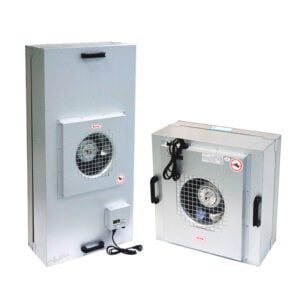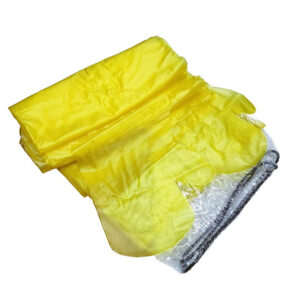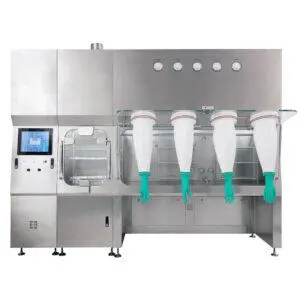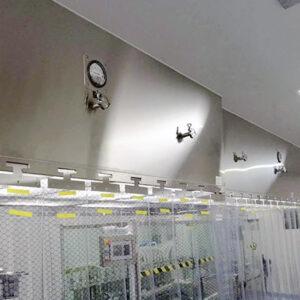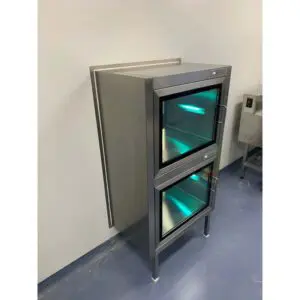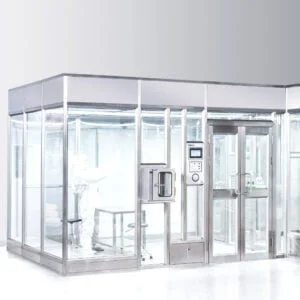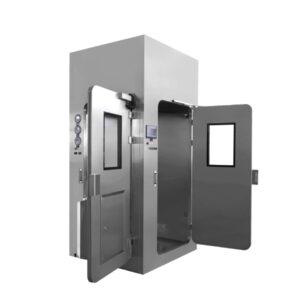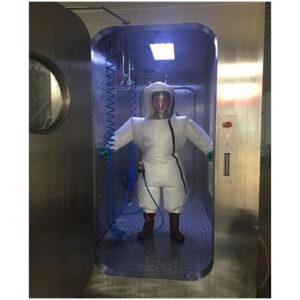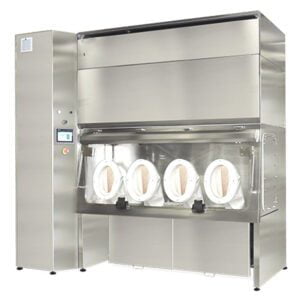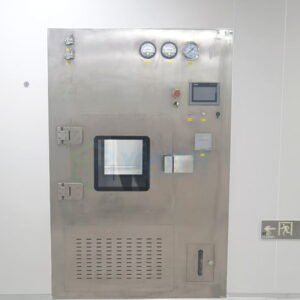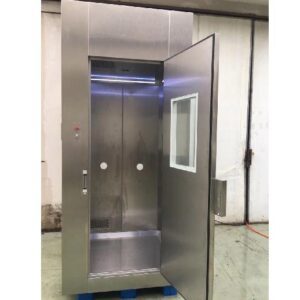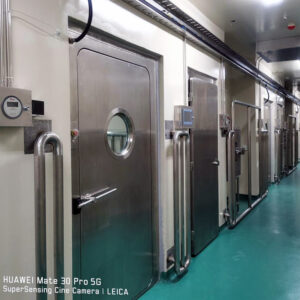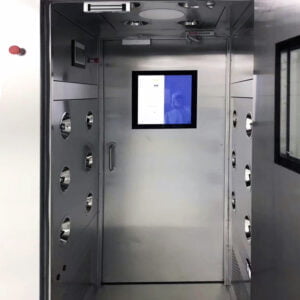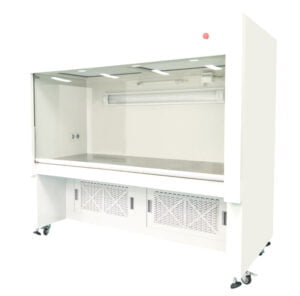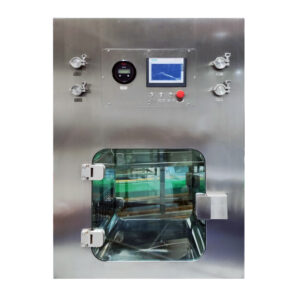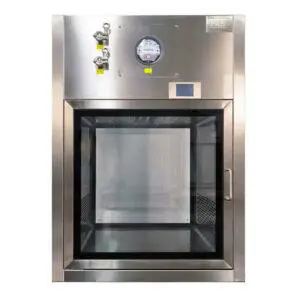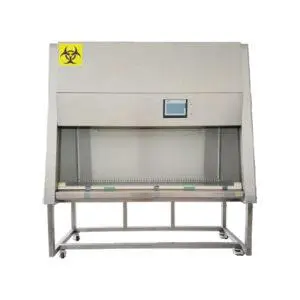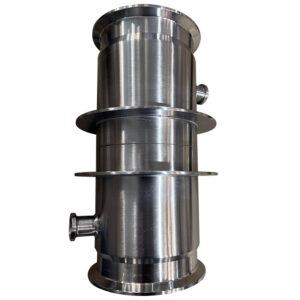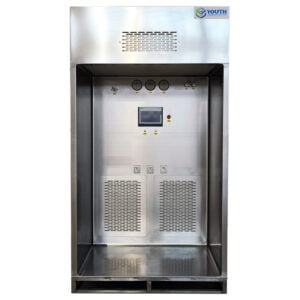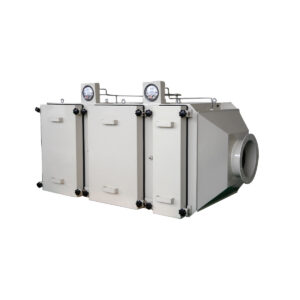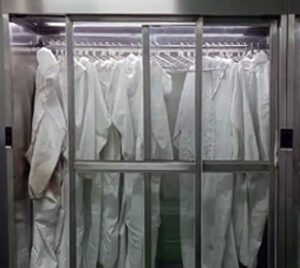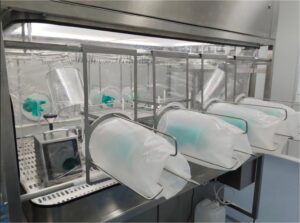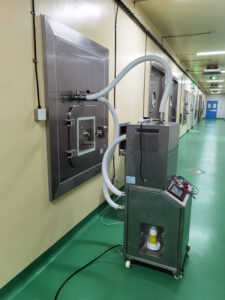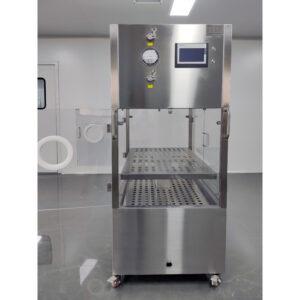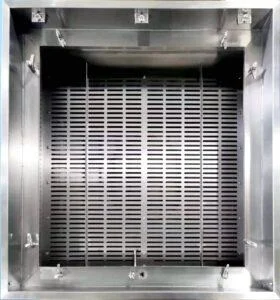HEPA filters have long been a staple in laboratory and healthcare settings, but their applications extend far beyond these traditional environments. As air quality concerns grow and industries seek more efficient ways to maintain clean environments, HEPA filter applications have expanded into various sectors, revolutionizing air purification across the board.
From residential spaces to industrial facilities, HEPA filters are now integral components in maintaining air quality and ensuring safety in diverse settings. This article will explore the wide-ranging applications of HEPA filters, demonstrating their versatility and importance in our modern world.
As we delve into the multifaceted uses of HEPA filters, we'll uncover how these powerful air purification devices have become essential in industries ranging from pharmaceuticals to food production, and even in our homes. We'll examine the specific benefits they offer in each application and why their use continues to grow across various sectors.
HEPA filters, originally developed for nuclear facilities, have evolved to become indispensable in numerous industries and applications, offering unparalleled air purification capabilities that meet increasingly stringent air quality standards.
How are HEPA filters transforming residential air quality?
In recent years, the importance of indoor air quality has gained significant attention, leading to a surge in the use of HEPA filters in residential settings. Homeowners are increasingly recognizing the benefits of these high-efficiency filters in creating healthier living environments.
HEPA filters in residential settings are primarily used in air purifiers and HVAC systems. They effectively remove a wide range of airborne particles, including dust, pollen, pet dander, and even some bacteria and viruses, significantly improving indoor air quality.
The adoption of HEPA filters in homes has been particularly beneficial for individuals with allergies, asthma, or other respiratory conditions. By removing airborne allergens and irritants, these filters can help alleviate symptoms and create a more comfortable living space. YOUTH has been at the forefront of developing advanced HEPA filter technologies for residential use, ensuring that homeowners have access to the highest quality air purification solutions.
According to recent studies, HEPA filters in residential settings can remove up to 99.97% of airborne particles as small as 0.3 microns, significantly reducing indoor air pollution and potentially improving overall health outcomes for residents.
| Particle Type | Size (microns) | HEPA Filter Efficiency |
|---|---|---|
| Dust | 0.5 – 100 | 99.97% |
| Pollen | 10 – 100 | 99.99% |
| Pet Dander | 0.5 – 100 | 99.97% |
| Bacteria | 0.3 – 60 | 99.97% |
The integration of HEPA filters into residential air purification systems has transformed the way we think about indoor air quality. As awareness grows about the potential health impacts of poor indoor air, the role of HEPA filters in creating healthier home environments is likely to become even more significant in the coming years.
What role do HEPA filters play in healthcare facilities?
Healthcare facilities, including hospitals, clinics, and laboratories, have long been at the forefront of HEPA filter adoption. In these environments, maintaining clean air is not just a matter of comfort but a critical factor in preventing the spread of infections and ensuring patient safety.
HEPA filters in healthcare settings are used in various applications, including operating rooms, isolation units, and general ventilation systems. They play a crucial role in removing airborne pathogens, including bacteria, viruses, and fungal spores, thereby reducing the risk of hospital-acquired infections.
The COVID-19 pandemic has further highlighted the importance of HEPA filters in healthcare settings. Many facilities have upgraded their air filtration systems to include HEPA filters as part of their infection control measures. These filters have proven effective in capturing respiratory droplets that may contain the SARS-CoV-2 virus, contributing to safer healthcare environments.
Studies have shown that the use of HEPA filters in healthcare facilities can reduce airborne bacterial counts by up to 89% and significantly decrease the incidence of post-operative infections in orthopedic surgery units.
| Healthcare Area | HEPA Filter Application | Benefit |
|---|---|---|
| Operating Rooms | Air handling units | Reduces surgical site infections |
| Isolation Rooms | Portable air purifiers | Prevents spread of airborne pathogens |
| Laboratories | Biosafety cabinets | Protects personnel and samples |
| General Wards | HVAC systems | Improves overall air quality |
The use of HEPA filters in healthcare facilities extends beyond patient care areas. They are also crucial in pharmaceutical compounding areas, where maintaining a sterile environment is essential for the production of medications. As healthcare continues to evolve, the role of HEPA filters in ensuring clean, safe air is likely to become even more critical.
How are HEPA filters revolutionizing industrial air quality management?
Industrial settings present unique challenges when it comes to air quality management. From manufacturing plants to food processing facilities, the need for clean air is paramount not only for worker safety but also for product quality and regulatory compliance. HEPA filters have emerged as a crucial technology in addressing these challenges across various industries.
In manufacturing environments, HEPA filters are used to remove particulate matter generated during production processes. This is particularly important in industries such as electronics manufacturing, where even microscopic particles can damage sensitive components. The HEPA filter applications in these settings often involve complex air handling systems designed to maintain cleanroom conditions.
Food and beverage production facilities also rely heavily on HEPA filtration to maintain hygiene standards and prevent contamination. These filters are used in processing areas, packaging lines, and storage facilities to remove potential contaminants from the air, ensuring product safety and quality.
Industrial applications of HEPA filters have been shown to improve air quality by removing up to 99.99% of particles 0.3 microns in size, leading to significant improvements in product quality and worker health in manufacturing environments.
| Industry | HEPA Filter Application | Key Benefit |
|---|---|---|
| Electronics | Cleanroom air handling | Prevents contamination of sensitive components |
| Food Processing | Production line air purification | Ensures food safety and quality |
| Pharmaceuticals | Sterile manufacturing areas | Maintains required cleanliness levels |
| Automotive | Paint spray booths | Improves finish quality and worker safety |
The adoption of HEPA filters in industrial settings has led to notable improvements in air quality, worker health, and product quality. As industries continue to face stricter regulations and higher quality standards, the role of HEPA filtration in industrial air quality management is expected to grow even further.
What impact do HEPA filters have on commercial building air quality?
Commercial buildings, including offices, schools, and retail spaces, are increasingly incorporating HEPA filters into their air handling systems to improve indoor air quality. This trend has been accelerated by growing awareness of the health impacts of poor indoor air and the need for safer, more comfortable work and learning environments.
HEPA filters in commercial buildings are typically integrated into HVAC systems, where they can effectively remove a wide range of airborne contaminants. This includes not only common pollutants like dust and pollen but also volatile organic compounds (VOCs) and other potentially harmful substances that can accumulate in indoor environments.
The benefits of HEPA filtration in commercial spaces extend beyond health considerations. Improved air quality has been linked to increased productivity, reduced absenteeism, and enhanced cognitive function among building occupants. This has led many businesses to view HEPA filtration as an investment in both employee well-being and operational efficiency.
Research has indicated that the use of HEPA filters in commercial buildings can reduce particulate matter concentrations by up to 50%, leading to significant improvements in indoor air quality and potentially reducing sick building syndrome symptoms by up to 30%.
| Building Type | HEPA Filter Application | Observed Benefit |
|---|---|---|
| Offices | HVAC systems | Improved employee productivity |
| Schools | Classroom air purifiers | Reduced student absenteeism |
| Retail Spaces | General ventilation | Enhanced customer comfort |
| Hotels | Room air conditioning | Improved guest satisfaction |
The integration of HEPA filters into commercial building air quality management strategies represents a significant step forward in creating healthier, more productive indoor environments. As the importance of indoor air quality continues to gain recognition, it's likely that HEPA filtration will become a standard feature in commercial building design and operation.
How are HEPA filters enhancing air quality in transportation?
The transportation sector, including aviation, automotive, and public transit, has increasingly turned to HEPA filtration to improve air quality for passengers and operators. This application of HEPA technology has become particularly relevant in light of recent global health concerns and the need for safer travel environments.
In the aviation industry, HEPA filters have been a standard feature in aircraft cabin air systems for many years. These filters are crucial in maintaining air quality during flights, removing a wide range of contaminants including dust, allergens, and even some viruses and bacteria. The efficiency of these systems has been highlighted during the COVID-19 pandemic, with many airlines emphasizing their HEPA filtration capabilities as a key safety measure.
Automotive manufacturers are also incorporating HEPA filters into vehicle cabin air filtration systems, particularly in high-end and electric vehicles. These filters provide passengers with cleaner air, reducing exposure to pollutants from road traffic and improving overall comfort during travel.
Studies have shown that HEPA filters in aircraft cabins can remove up to 99.999% of dust, pollen, mold, bacteria, and any airborne particles with a size of 0.1-0.3 microns, significantly improving air quality during flights.
| Transport Type | HEPA Filter Application | Key Benefit |
|---|---|---|
| Aircraft | Cabin air recirculation systems | Removes airborne pathogens |
| Cars | In-cabin air filtration | Reduces exposure to traffic pollution |
| Trains | Ventilation systems | Improves air quality for long journeys |
| Buses | Air conditioning units | Enhances passenger comfort |
The adoption of HEPA filters in transportation has not only improved air quality for passengers but has also helped to restore confidence in public and shared transportation systems. As air quality concerns continue to be a priority for travelers, the role of HEPA filtration in transportation is likely to expand further.
What role do HEPA filters play in scientific research and development?
Scientific research and development facilities, including laboratories and cleanrooms, rely heavily on HEPA filtration to maintain the sterile environments necessary for their work. These filters are crucial in preventing contamination of samples, ensuring the accuracy of experiments, and protecting researchers from potentially harmful substances.
In research laboratories, HEPA filters are used in biosafety cabinets, fume hoods, and general ventilation systems. They play a vital role in containing hazardous materials and preventing cross-contamination between different research areas. This is particularly important in fields such as microbiology, virology, and genetic research, where even minute contaminants can compromise results.
Cleanrooms, which are essential in industries such as semiconductor manufacturing and pharmaceutical research, depend on HEPA filtration to maintain their stringent air quality standards. These environments require exceptionally low levels of airborne particles, which HEPA filters are uniquely capable of providing.
In cleanroom environments, HEPA filters have been shown to achieve particle counts as low as 10 particles per cubic foot for particles 0.5 microns and larger, meeting the stringent requirements of ISO Class 3 cleanrooms used in advanced scientific research.
| Research Area | HEPA Filter Application | Critical Function |
|---|---|---|
| Microbiology | Biosafety cabinets | Prevents sample contamination |
| Pharmaceutical | Cleanrooms | Maintains sterile production environments |
| Nanotechnology | Particle-free workspaces | Ensures precision in nanoscale work |
| Genetic Research | Isolation chambers | Protects genetic material integrity |
The use of HEPA filters in scientific research and development has enabled significant advancements in various fields by providing the clean environments necessary for cutting-edge work. As research continues to push boundaries, the importance of HEPA filtration in maintaining these crucial environments is likely to grow.
How are HEPA filters contributing to environmental remediation efforts?
Environmental remediation, the process of removing pollutants or contaminants from environmental media such as soil, groundwater, or air, has increasingly incorporated HEPA filtration technology. These filters play a crucial role in cleaning up contaminated sites, managing hazardous waste, and improving overall environmental quality.
In asbestos abatement projects, HEPA filters are essential components of the air filtration systems used to capture and contain asbestos fibers. These systems prevent the release of harmful fibers into the environment during removal and disposal processes, protecting both workers and surrounding communities.
HEPA filters are also used in the cleanup of sites contaminated with radioactive materials. In these applications, the filters capture radioactive particles, preventing their spread and facilitating safe disposal. This is particularly important in decommissioning nuclear facilities or remediating areas affected by nuclear accidents.
Environmental remediation projects utilizing HEPA filtration have demonstrated the ability to capture up to 99.97% of particles as small as 0.3 microns, including asbestos fibers and radioactive particles, significantly reducing environmental contamination risks.
| Remediation Type | HEPA Filter Application | Environmental Impact |
|---|---|---|
| Asbestos Abatement | Negative air machines | Prevents asbestos fiber release |
| Radioactive Cleanup | Mobile filtration units | Contains radioactive particles |
| Industrial Site Cleanup | Dust suppression systems | Reduces airborne contaminants |
| Mold Remediation | Air scrubbers | Captures mold spores |
The application of HEPA filters in environmental remediation has significantly enhanced the safety and effectiveness of cleanup efforts. As environmental concerns continue to be a global priority, the role of HEPA filtration in remediation projects is expected to expand, contributing to cleaner, safer environments.
In conclusion, HEPA filter applications have indeed extended far beyond the laboratory, revolutionizing air quality management across a wide range of industries and environments. From improving the air we breathe in our homes to ensuring the safety of sensitive scientific experiments, HEPA filters have become an indispensable technology in our quest for cleaner air.
The versatility of HEPA filters is evident in their adoption across diverse sectors, including healthcare, industry, transportation, and environmental remediation. Their ability to remove a vast array of airborne particles, including dust, allergens, bacteria, and even some viruses, has made them a crucial component in creating safer, healthier spaces.
As we continue to face global challenges related to air quality and public health, the importance of HEPA filtration is likely to grow even further. Ongoing research and development in filter technology promise to expand the capabilities and applications of HEPA filters, potentially opening up new frontiers in air purification.
The widespread adoption of HEPA filters across various sectors underscores a growing recognition of the importance of air quality in our daily lives. Whether it's in our homes, workplaces, or public spaces, the presence of HEPA filters is increasingly becoming synonymous with cleaner, safer air. As we move forward, it's clear that HEPA filter applications will continue to play a vital role in shaping the air quality landscape, contributing to improved health outcomes and enhanced quality of life for people around the world.
External Resources
- CPE Filters – This article explains the primary uses of HEPA filtration systems, including their applications in healthcare, biomedical institutions, and various industrial settings such as integrated circuit fabrication, data centers, and food and pharmaceutical production.
- ACT Dust Collectors – This blog post details the industrial applications of HEPA filters, including their use in powder coating, metalworking, food processing, pharmaceutical cleanrooms, and laser or plasma cutting operations.
- EPA – This fact sheet from the EPA discusses the typical industrial applications of HEPA and ULPA filters, including their use in chemical, biological, and radioactive particle collection, as well as in hospital, nuclear, and mixed waste incinerators.
- Engineered Filtration Systems – This article highlights the importance of HEPA filters in maintaining air quality in various industries, including pharmaceuticals, microelectronics, nuclear containment, and food and beverage production.
- Wikipedia – This Wikipedia entry provides a comprehensive overview of HEPA filters, including their efficiency standards, the types of particles they capture, and their applications in biomedical, industrial, and other settings.
- Camfil – This resource from Camfil discusses the various industrial applications of HEPA filters, including their use in clean rooms, pharmaceutical manufacturing, and other environments requiring high air quality standards.
Related Contents:
- HEPA Filter Efficiency: Maximizing Air Purification
- HEPA vs ULPA Filters: Choosing the Right Option
- HEPA Filters in Biosafety Cabinets: A Deep Dive
- HEPA Filter Testing: Ensuring Optimal Performance
- HEPA Filter Maintenance: Extending Filter Life
- HEPA Filter Construction: Materials and Design
- HEPA Filtration in Sterility Test Isolators: Key Facts
- HEPA Filter Replacement: When and How to Do It
- HEPA Filter Standards: Global Regulations Guide


